Gluten Free Kimchi Pancakes for the Korean Heart.
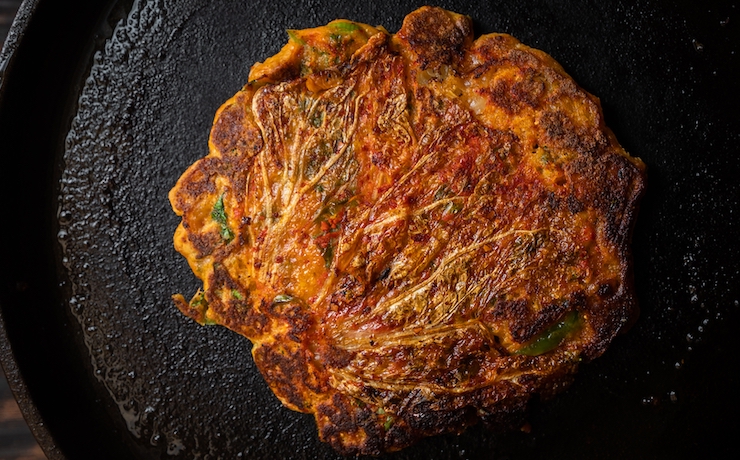
My mom is most proud of me when I eat kimchi. Or maybe, she is most proud of herself when her American daughter shamelessly pilfers a sliver of fiery cabbage with her two fingers from the kimchi byung (jar) squatting in the back of her fridge like a rather contented troll. Whenever she catches me doing this, or watches me make a meal out of nothing more than rice, water, and a handful of bright red radishes, she shakes her head and mutters,
“You are so Korean.”
I know what she is thinking of. She is recalling every single time I hurled, “I’m not Korean, I’m AMERICAN!!” in her face throughout my fraught adolescence as a child of immigrants. But there is some truth to her logic. There is something fundamentally Korean about not kimchi, per se (lots of people like kimchi), but its role as more than a condiment or a side dish or an exotic “foodie” thing to write about on your trip to Seoul.
An amazing writer once wrote, “The heart is an organ fire,” to which I would reply,
“The Korean heart is an organ of kimchi.”
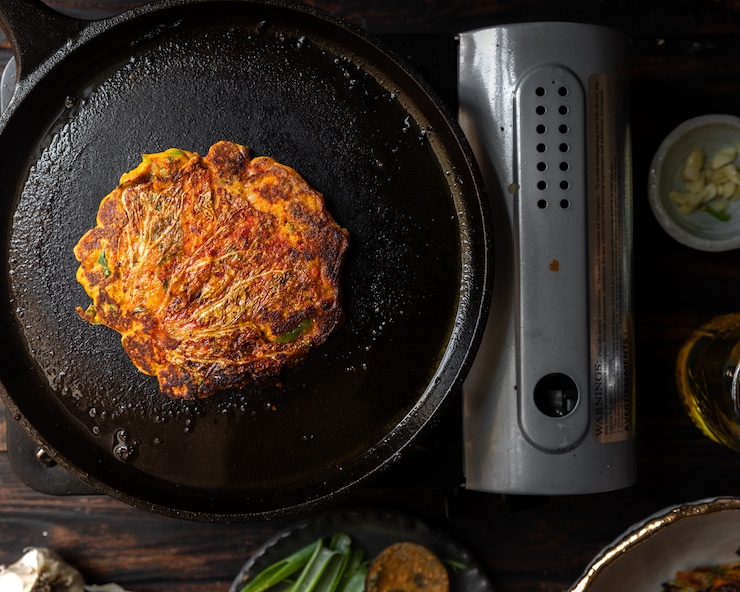
I can still feel the prickle of my mother’s anxiety over that squatting kimchi byung in our fridge whenever our next door neighbor came by or I invited white friends over after school. I remember when I used to hate the sight of kimchi at the dinner table because it signified, for the millionth time, that instead of eating meat and potatoes like they did on Family Ties, we’d be eating the same old boring “Korean food.” I remember making fun of my Dad for eating kimchi with his spaghetti when my mom finally relented and cooked us an “American” meal. I remember the first time I treated my entire creative writing class, in college, to Korean food and one of the kids covered his nose and whispered, “God, the smell.” I remember the time I thought about going vegan and how the first thing I worried about was losing kimchi.
Losing me.
One kimchi expert has explained that:
“kimchi almost never spoils. Prepared correctly and with enough salt, it can ripen for months, even years, until it becomes mukeunji — kimchi that’s so concentrated in flavor that it burns the tongue and tastes wonderful when stewed.” – Eric Kim, “Think of Kimchi as a Verb,” New York Times, July 2, 2020.
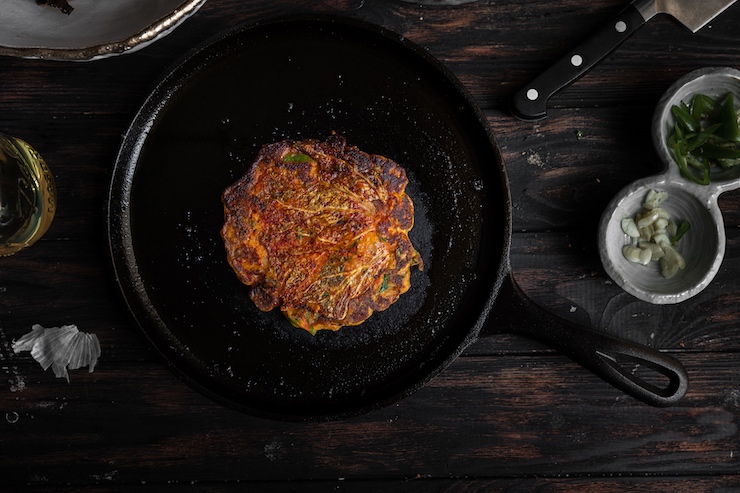
I married the first man I ever loved. When I divorced him, I asked my therapist, “Will I ever love anyone else the way I loved my ex-husband?”
The notion of “first love,” or 첫사랑 (“chut sa-rang”) has gained an almost mythical quality thanks to kdramas and the confucian ideals of repressing emotions for the sake of the greater good. Perhaps some of that filtered into me, as I started to doubt my heart’s capacity for a second or third or fourth love. I viewed my heart as a battery, thumping passionately and vigorously during the first half of my life, but with little juice left after being wrung through a divorce. Was I destined to live out the rest of my life with at most a spectral version of love? Something that reminded me of love, maybe tasted a little bit like love? Maybe that’s all we’re allotted in life–one all-consuming 뜨거운 affair and if you can’t make it work… well, such is life.
These are the questions that made divorce even more agonizing–the uncertainty of the world I was stepping into somehow made the world I was leaving look less uninviting.
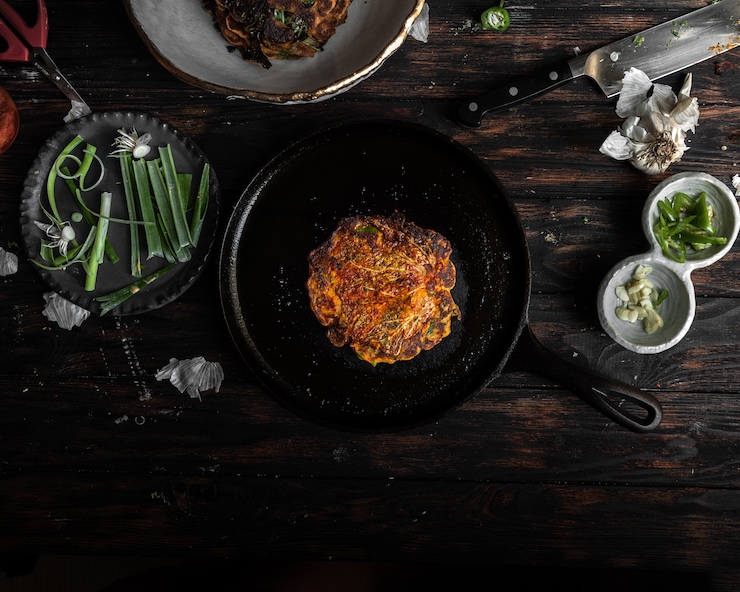
I met Anthony through OkCupid. And despite what he claims, I didn’t really think it would go anywhere for awhile. For the first several dates, I didn’t know how to act around him, and I was worried I would hurt him more than I would hurt myself. I distinctly recall one of my girlfriends warning me, “Honey, I would worry more about yourself than breaking his heart.” But eventually, the “piano guy” won out over all the other suitors and before long, I knew I was ready to re-enter the ring.
Only, this time, I was armed with something that resembled self respect, that may have even looked a bit like confidence. My heart had been scathed within an inch of its life, but remained intact and, surprisingly, still in heavy pursuit of elan and joy.
We got married in Rome two years ago.
I woke up this morning and had to repress the urge to ask him, “Will you marry me? Again?” I am 41 years old and I am silly and giddy and hot-headed and moody, but mostly, I continue to marvel at how cluelessly I lived in my 20s and 30s, how little joy I really knew, then, compared to what I know now.
It was salted, it was aged, and now, this heart burns.
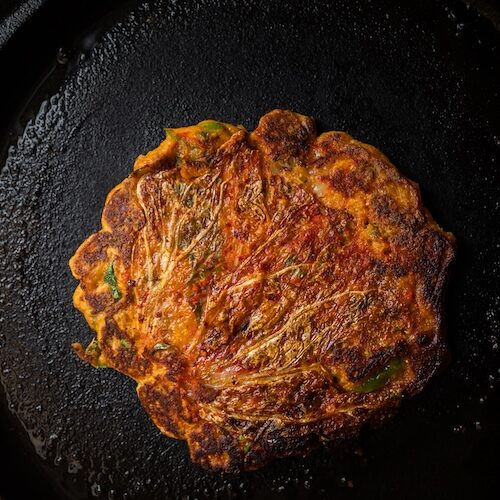
GF Kimchi Pancakes
Ingredients
Pancakes
- 1 tbsp white wine vinegar
- 3/4 cup non-dairy milk
- 1/2 cup blanched almond flour (almond meal will result in less fluffy pancake)
- 1/2 cup sweet white rice flour (do not replace with regular white rice flour)
- 2 tbsp cornmeal
- 1/4 cup potato starch
- 2 tsp baking powder
- 1/2 tsp baking soda
- 1 tsp salt
- 1 tbsp garlic powder
- 1 tbsp onion powder
- 2 scallion whites chopped
- 2 scallion greens (julienned)
- 1 Korean green chili (sliced)
- 3 cloves garlic (sliced and minced)
- 1 cup kale (cut into ribbons)
- 1/2 cup overripe kimchi (plus more for topping)
- 1 tsp kimchi juice
Dressing
- 1/4 cup soy sauce (tamari is a GF soy sauce)
- 1 tsp maple syrup
- 1 tsp rice wine vinegar
- 1 tbsp mirin
- 1 tbsp sesame seeds
- 1/2 jalapeno or Fresno chili pepper (seeded and thinly sliced)
- 1 tbsp garlic (minced)
- 1 tbsp Korean pepper powder (optional)
Instructions
- Stir white wine vinegar into non-dairy milk and set aside. In a large bowl, mix together all dry ingredients with whisk or fork.
- Add minced garlic (1/2 of your garlic should be minced and the other half should be thinly sliced, which you will save for "toppings"), the chopped scallion whites, 1/2 of the Korean green chili, and the kale to the dry ingredients.
- Add 1/2 cup of overripe kimchi, as well as 1 to 2 teaspoons of kimchi juice. Using a pair of kitchen shears, snip up the kimchi into bite sized pieces (you can also chop the kimch in advance, but it always makes a mess).
- Add in non-dairy milk mixture and whisk until the dry ingredients are fully incorporated. The batter will be very thick (almost like cake batter), but if it's too thick to work with, add 1 tablespoon of non-dairy milk at a time until it gets to a workable consistency.
- Add a little oil to a skillet (I used a cast iron skillet) to medium high heat. When the pan is hot, add some scallion greens, sliced garlic, and/or kimchi directly to the pan. Then, pour small ladleful (about 3 tablespoons) of batter.
- Lower the heat to medium-low and cook for about 1 1/2 to 2 minutes before flipping. Cook until both sides are evenly browned and serve with the dressing (which you make just by mixing all the ingredients together).
July 27, 2020
Join The Discussion
July 27, 2020
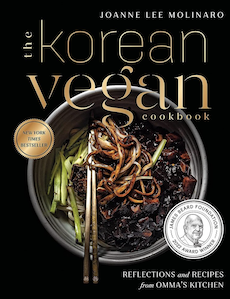
Be the First to Comment